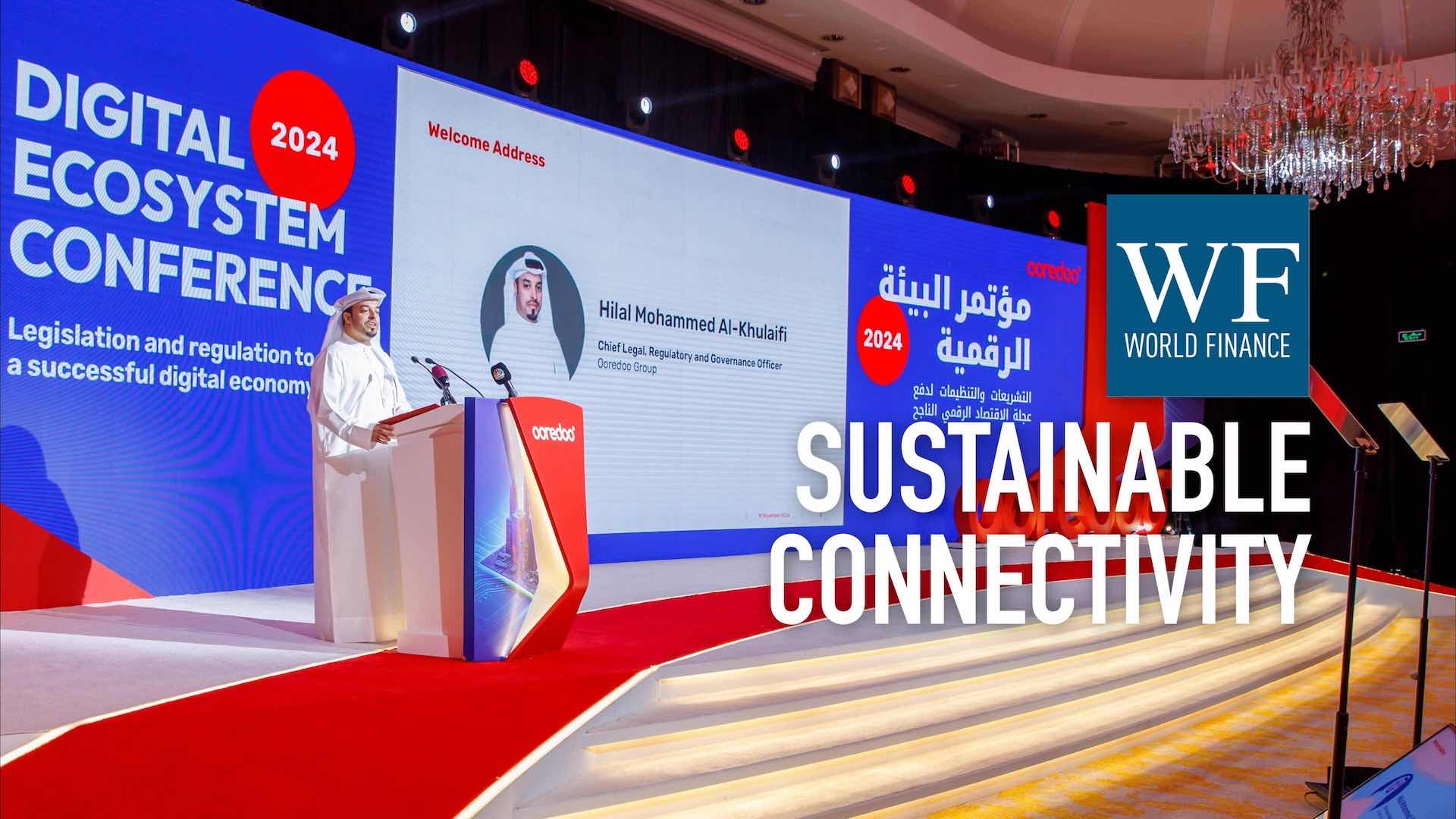Patricio Jottar on corporate governance | CCU | Video
World Finance interviews Patricio Jottar, CEO of CCU, on the company's rapid growth and corporate governance framework
Related:
Transcript
CCU is a diversified beverage company, operating mainly in Chile, Argentina and Uruguay. It is the largest brewer in Chile, and the second largest in Argentina, but is also one of the most important companies in the soft drink, mineral water, wine, and liquor sectors. Patricio Jottar explains how he drove the business into these new areas, and the model of corporate governance adopted through all CCU’s operations.
World Finance: Since becoming CEO of CCU, how has the company developed?
Patricio Jottar: I took up office as CEO of CCU in 1998, and since then the company has developed significantly. This is a company that was already developing quickly before I was appointed CEO, and I am totally sure that when my tenure ends and I retire from CCU – there’s still a long time before that happens – the company will continue to develop.
It is a company that has excellent people, an excellent board of directors, an excellent controlling group, and a very strong corporate governance policy at the same time. But yes, the company has developed. Without going into detail on the numbers, volumes have more than doubled since I became CEO and the EBITDA in dollars has practically quadrupled, as has the company’s market cap.
World Finance: And half of that growth is organic growth, so how have you expanded your market share?
Patricio Jottar: Organic growth is the growth of per capita consumption of the categories in which we participated when I joined CCU. Taking the case of beer, which is at the core of our business. Per capita consumption at the time was around 25 or 26 litres, whereas today it has grown to 42 litres. This has involved a conscious effort to foster per capita consumption.
Per capita consumption of water was around 5 litres, whereas today it is around 20 litres. We are the leading operator in the water market.
At the time soft drinks also had a per capita consumption of less than 100 litres, whereas today it is around 120 litres. It has grown – not as significantly as beer and water – but by quite a large amount that has facilitated our growth.
We have accompanied this growth: maintaining our market positions, innovating, creating products with a high added value, which has allowed us to enjoy a very significant organic growth.
“We did not participate in the pisco market – we started our operations from zero, and today we enjoy a 55 percent share”
World Finance: And what about your inorganic growth? How has the company moved into new product lines, and new regions?
Patricio Jottar: In Chile there were a series of businesses and categories in which we did not participate, or only had a very marginal market share. Today, however, we are highly active and have assumed a leadership position.
First, the pisco business. Pisco is Chile’s main distillate. 50 percent of all distillates drunk in Chile are pisco. And we did not participate in this market – we started our operations from zero before acquiring the second largest operator on the market, and today we enjoy a 55 percent share of the market.
We followed launches from zero and then took responsibility for the distribution of Pernod Ricard products. In the liquor market as a whole, including pisco, today we have a 40 percent market share. It’s very interesting.
In the wine business, our San Pedro winery was up and running; the third largest winery in the country.
We completed a merger and took control of joint operations with the Tarapacá winery, which was the fifth largest winery in the country, and today we are the second largest wine distributor nationwide.
We have also acquired a controlling stake in Chile’s largest bottled water distributor, known globally as Home and Office Delivery.
Their activities are very interesting and significant to our inorganic growth in Chile.
In Argentina we purchased a brewery outfit, which allowed us to increase the size of our business, and start operating at a cross-category level. Initially we were just breweries, but now we have a stake in the wine business.
We are leaders in the cider business, we are involved in liquors, and we have a small involvement in alcohol-free products.
And finally, we have invested in production in a third country, Uruguary, and we are taking our first steps towards distribution in Paraguay.
“A CEO must be constantly concerned with maintaining a thriving, effervescent, informal organisation”
World Finance: Let’s talk about corporate governance. World Finance has recognised CCU for your achievements in this field; what is the CCU vision of corporate governance?
Patricio Jottar: All organisations worldwide have two components, two elements, that are closely related. But those two components, or those two… dimensions… bring life to the organisation. One is what I like to call the formal organisation, the other is the informal organisation.
The informal organisation is a series of relationships and activities that occur on a day-to-day basis inside the organisation, which are neither foreseen nor scheduled. In the informal organisation, there are things that are immeasurable, like the quality of people’s intentions.
Am I doing my job exclusively in my own best interests, or do I worry about everyone else? These kinds of things fall within the boundaries of the informal organisation, and a CEO must be constantly concerned with maintaining a thriving, effervescent, informal organisation.
At the same time, companies have a formal organisation, and the formal organisation is comprised of a corporate framework that contains all good corporate governance standards on one hand, and all the management processes and operational processes on the other.
Our management processes are six processes that do not focus on operational matters. Instead they are processes – as their name suggests – that focus on the general management of the companies by means of which we manage the CCU corporation and the whole range of our businesses.
World Finance: Tell me more about those management processes.
Patricio Jottar: These processes are, number one: the strategic planning process; by means of which we permanently define our strategic priorities, both every three years and every year.
Secondly the preference model process, which is the process through which we manage the value of our brands.
In third place, the human resources process, which is the process through which we manage the talent within the company.
Fourthly, the productivity, quality and environmental process. As its name suggests, it is the process by means of which we manage these three dimensions of the company’s operations.
In fifth place, the operating budget process, that as its name suggests, allows us to generate operating budget indicators. Both in terms of growth, profitability and sustainability, and transforming this into a balance scorecard for the integrated management of the company in each of its six units.
And finally, the investment process, as its name suggests, allows us to manage all investments – in terms of capacity, the environment, technology, distribution, and in implementing CCU points of sale and each of its subsidiaries.
“We have a corporate governance framework that looks integrally at the business in all its aspects”
World Finance: And the corporate framework you mentioned?
Patricio Jottar: The corporate framework at CCU is based on a board of directors, the general management, and three unit groups that report to the general management body: the business strategic units, the corporate support units, and the strategic service units.
And so, the strategic business units are CCU’s subsidiaries in each of the business areas in which we participate. We have a beer subsidiary, a water subsidiary, a subsidiary for all other non-alcoholic products, a liquor subsidiary, a wine subsidiary in Chile… Each of these subsidiaries has a CEO and a board of directors.
Then we have the corporate support units, which serve two main purposes. Firstly, to deliver shared services throughout the different administrative functions among the different businesses, in accounting, human resources, supply, engineering; in legal areas, in technological areas, and so on.
And the second purpose is to perform certain activities that are distinctly corporate, such as financing, auditing, public relations.
And finally, the strategic service units – which are also shared service units, but which address a more operational side of the business, and not simply administration as mentioned previously.
All these units report to their Boards of Directors, they have service level agreements and are coordinated by the CEO.
Furthermore, the Board of Directors has a committee of directors that fulfil the obligations set out by law, primarily, analysing the financial statements and approving all related transactions, and an audit committee that fulfils the standards of the SEC, as the company is listed on the New York Stock Exchange.
So thus we have a corporate governance that looks integrally at the business in all its aspects.
World Finance: And finally, what does this recognition from World Finance mean to you?
Patricio Jottar: We are extremely proud, extremely recognised, and extremely motivated as a result of this award. We are proud given the quality of the institution that is giving the award. Recognised as we feel that we have made a systematic effort to implement world-class corporate governance.
And motivated as awards of this nature encourage us to keep working each and every day to do things better.
World Finance: Patricio Jottar, thank you very much for your time.
Patricio Jottar: Not at all, thank you. And we would like to repeat that we feel truly honoured, proud and happy to receive this award, which motivates and encourages us to make ever bigger efforts each day to improve our corporate governance.

 Building better telecoms: How Ooredoo helps advance standards and policies
Building better telecoms: How Ooredoo helps advance standards and policies Sustainable connectivity: Ooredoo’s ambitions for innovative and green telecoms
Sustainable connectivity: Ooredoo’s ambitions for innovative and green telecoms
